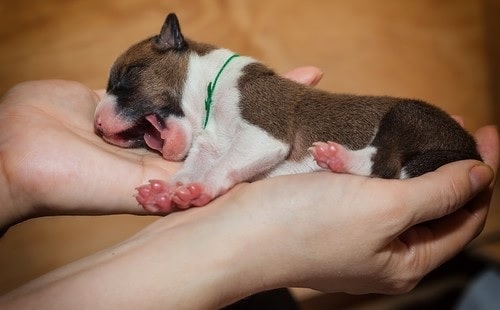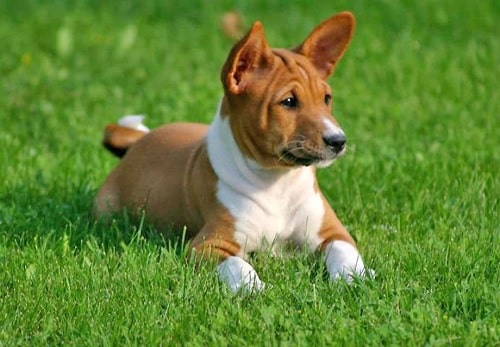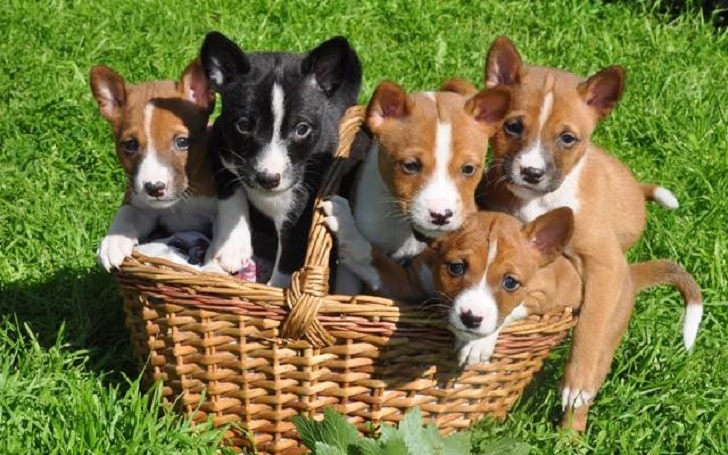Basenji Puppies
Basenji is a small-sized dog that falls under the hound group category. It is a lean but muscular dog with a compact body. They are very energetic. and makes a great companion dog in a loving and active family.
If your Basenji dog is pregnant, this article will help you know about the behavior and caring of the puppies.
Newborn Basenji Puppies
The newborn Basenji puppies are like a guinea pig with no teeth and cannot hear or see. They are very dependent on their mother for everything from food to defecating. They also are not able to generate heat on their own, so they all pile up against their mother’s body for warmth. The puppies should only be fed their mother’s milk as it contains antibodies that protect the puppies from any kind of serious disease.
Neonatal Stage (0-2 Weeks)
The neonatal stage is the age between birth to two weeks. This is the first stage of their life where they are very vulnerable and fragile. The Basenji puppies need good care at this time where they need enough sleep and warmth. If they are not warm and cozy. the puppies might die of hypothermia. They at least need 90% of sleep for proper growth and development of their body and mind.

Image Source: Dog Pack
By the second week, you can see the Basenji puppies getting doubled the size of their birth. They also slowly begin to crawl and move which provides them with certain exercise that helps in muscle development.
Transitional Stage (2-4 Weeks)
It is a big stage for any puppy’s life as they start to witness the world around them. Their eyelids start to open by 10-12 days and by the end of the second week, they also can hear the sound around the surroundings. They get familiar with the voice of their mother to start communicating with them by making their own vocabulary like yelping, whining and barking.
By the third week, they start to play with their littermates and also start to sample food from their mother’s bowl.
Socialization Stage (4-16 Weeks)
It is an important stage in the Basenji puppy’s life as they get to know the world outside their family. The puppy’s interaction with canines and other human beings increases. They should be exposed slowly to the outer world as they tend to accept any individual as their own family. So, introduce them to other people carefully and always take them out on a leash.

Image Source: AKC Marketplace
Basic obedience training should be started at this time when they are very willing to please their owners. Establish a firm leadership on them and start the training. It is also the time for vaccination against distemper, adenovirus, and rabies.
Juvenile Stage (3-6 Months)
The stage where the puppies slowly lose their puppy behavior and face is called the juvenile stage. They become more independent and start to do things on their own with proper training. By this time, they will stop feeding on their mother’s milk and starts having solid food. It is the right time to give your puppies the right supplements and a complete balanced diet.
The puppies are very mischevious and naughty at this age. You can be tired of their behavior but obedience training is the key to make them behave properly. It is also an age of enthusiasm and mischievousness, so do not use physical force on the ever.

Image Source: Fine Art America
Adolescence Stage (6-12 Months)
The Basenji puppies reach adulthood from the 6th months. They are more matured physically although they are still puppy inside. They become sexually active and experienced their first heat. Although they are sexually active, it is not healthy for them to be mating and breeding. So, breeding should only be started from about 15 to 16 months.
At this age, they need constant physical exercise for the proper development of their bodies. Their food also should be switched from puppy food to premium adult food.
Visit Doglime for more information about puppies and their behavior.
Tags










